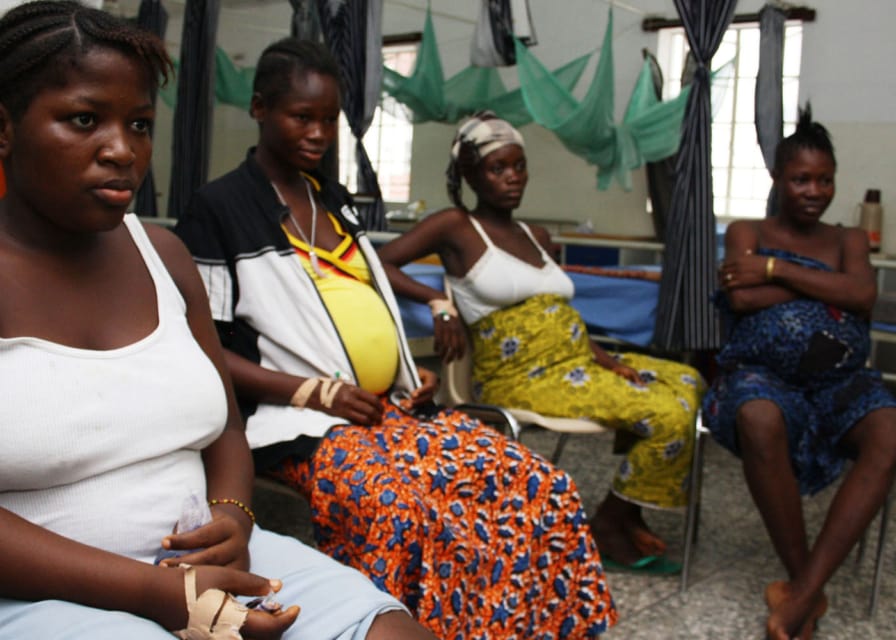Sierra Leone: Where the victim is re-victimised

Five human rights organisations working on advancing the rights of women and girls in Sierra Leone, are urgently calling on the leadership of Sierra Leone, and all political actors to take immediate action to address the increase in incidents of sexual and gender based violence across the West African country.
Girls who get pregnant as a result of rape or sexual exploitation end up being double punished as they are banned from attending school and in most cases there is no access to justice for the rape ordeal, with perpetrators going unpunished.
The joint statement issued by Equality Now, Women Against Violence and Exploitation in Society , Defence for Children International – Sierra Leone, The Women’s Partnership for Justice and Peace and Graceland Sierra Leone, detailed the urgent need for action following the worrying rise in the number of sexual and gender based violence cases reported, and the perpetrators being let off the hook.
According to statistics by the Rainbow Centre and Campaign for Human Rights and Development International, 56 percent of the rape victims are between 11-15 years. Majority are school going children. Once the girls who cannot legally consent to sex get pregnant, they end up dropping out of school. The strongly worded statement further indicates that, many of the girls become pregnant due to the type of sexual violence reflected in these statistics. Many more girls under the age of 18 become pregnant as a result of exploitative relationships with much older men, which is a crime in Sierra Leone. Girls are subjected to multiple violations of their human rights, including forced and early child marriage and female genital mutilation, a ripple effect in some cases, of the sexual violence.
In his address pursuant to his swearing into political office following recent elections, the President of Sierra Leone, Julius Maada Bio, promised to prioritise the education sector in Sierra Leone. The organisations are now calling upon him to ensure that all pregnant girls are allowed to continue with their education and further lift the on-going discriminatory ban, targeting teen mums. There is an on-going human rights crisis affecting adolescent girls in Sierra Leone because thousands of pregnant adolescent girls who were exposed to sexual violations, abuse or exploitation, are still being denied the right to attend school. The right to education for pregnant girls in Sierra Leone was denied in April 2015, just before schools re-opened following the Ebola crisis. It was declared as official government policy by the Ministry of Education, Science and Technology.
The organisations now want the new political regime to:
-Ensure that the laws that protect girls are fully implemented and enforced in Sierra Leone and that the perpetrators of sexual violence are brought to book;
-Adequately equip the Family Support Unit of the Sierra Leone Police to ensure that the officers are in a position to effectively handle all the cases reported to them;
-Develop and implement programmes that ensure that girls know their rights and have access to safe spaces and other resources including a programme of Comprehensive Sexuality Education as part of the curricula delivered in all schools and provide sexual and reproductive health rights services to girls;
-Put in place measures that address the prevalence of teenage pregnancy and sexual exploitation and conduct nationwide campaigns to alleviate the stigma and discrimination endured by pregnant girls.
The Sierra Leone Education Act of 2004 clearly provides for non-discrimination in access to education. The normative instruments of the United Nations and United Nations Educational, Scientific and Cultural Organisation clearly outline the standards and obligations for states in regards to the right to education.
Sierra Leone has made tremendous steps in ratification of international and regional laws that seek to promote and protect the rights of women and girls. At the national level, the Sexual Offences Act of 2012 is comprehensive in the proscription of offences and penalties. Despite these laws being in place, the rights of women and girls continue to be abused. Despite the establishment of the Family Support Unit of the Sierra Leone Police, the police officers in this unit do not take adequate and timely action to ensure that thorough investigations are conducted, suspects arrested and arraigned in court. Additionally despite the provisions in section 39 of the Sexual Offences Act, girls who are sexually abused are still made to pay for their medical treatment. Most of these girls and women cannot afford to pay for these medical costs.
* Equality Now is not for profit organisation that works for the protection and promotion of the human rights of women and girls around the world. It is one of the signatories to the statement.
